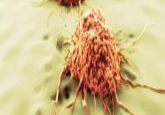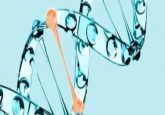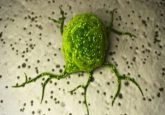A road to research: top tips from an early career researcher

In the back passenger seat of the small family car, we were stopped at the traffic light before turning into Asda for the weekly family shop. In front of us was a billboard. Having read the billboard, my innocent 9-year-old self asks my parents “What is cancer?” To which my mum turns around from the front seat to face me and my younger sister in the back and reply, “When you get cancer, you die” That wasn’t the answer I was expecting, nor wanted but upon further probing of my mum, it became clear to me she didn’t have the answer. But I kept my eyes and focus on the billboard. It was from Cancer Research UK, the world’s largest cancer research charity. In that moment, all I knew was there was a big problem, there were people trying to solve it, but it’s not been solved yet. And I wanted to do something about it.
Now back then, I’d reasoned, that since we get medicines from the pharmacist, that the people who make the medicines must be upstairs in a pharmacy. I’d also reasoned that these people are scientists who do research; hence I decided I wanted to be a research scientist and announced this at the leavers ceremony at the end of primary school. Biology and chemistry were my favorite subjects at school, fascinated by anything related to the human body and disease and I went on to study for A Levels in Biology, Chemistry, Mathematics and Business Studies (money making skills I thought would come in useful in any profession!). Top tip: When choosing your A level subjects – choose what you enjoy. There are many university courses that offer foundation training so even if you didn’t study the right subjects, you will be able to catch up.
During my studies, my mother convinced me that I wanted to be medical doctor and thus pursued an application for medicine with a back up option of biomedical sciences. My mind was in it, but my heart had never really clicked to it. I was interviewed by just one medical school. Here during the grueling group and individual interviews, I felt nervous and shy but tried. However, at the interview with the life science department, I felt confident and at home. I could feel my enthusiasm for science and research being transferred to my interviewer and was excited by the prospect of conducting a placement in a research laboratory abroad. To my delight, the interviewer told me there and then, a conditional offer would be made. Top tip: If you are really passionate and enthusiastic about something, it will naturally shine through in an interview and you will feel at home at the institute and with your interviewer it will be more like a chat than an intense grilling. You will know you have made the right decision when you feel that.
So with my four A grades at A Level I headed off to The University of Manchester (UK). During the first few weeks, I did some further research and decide to specialize my degree in medical biochemistry, for I was interested in molecular level of detail but only where related to humans and human disease. Top tip: Within a life science degree, I don’t think it really matters which subject you specialize in. Choose a course that offers the most flexibility for modules you are most interested in. During this degree, subject to achieving satisfactory grades, there is the option to take a placement year and get a feeling of working is scientific research. I took the opportunity and was incredibly fortunate to have a landed my internship at the Mayo Clinic (FL, USA). I worked in the group of Panagiotis Anastasiadis. This was easily one of the best years of my life. I loved both the work and the lifestyle. One day here it hit me. I was doing the thing I wanted to do as a child. I was not upstairs in a pharmacy, but at cancer research institute where I felt like I belonged.
With no requirement to do a masters degree and this wonderful experience on my back, I was determined to pursue a PhD in cancer research. I found this position through findaphd.com – the name says it all. I was drawn to the position as it involved identifying a new mechanism oncogene-induced senescence, I liked the idea of doing a screening and finding something myself. Oncogene-induced senescence is an intrinsic tumour suppressor mechanism, a program associated with aging that protects our cells from developing malignant tumors. To understand how our body has evolutionary developed a mechanism to protect us from cancer can help us develop natural therapies in light of this. I applied for several other projects but there were none that appealed to me as much as this one, so again my enthusiasm shone in the interview for this project much more than any other place and I secured the PhD project. Top tip: contact your potential supervisor before applying and show your interest in the project. This will really help you with the application and interview. So after 4 long years, I discovered a signaling pathway known for its role in protecting us from bacterial infections and in the acute inflammatory response to be a playing a key tumor suppressive role. But in order to get this work prepared for publication, I decided to take the opportunity to continue working on the project as a postdoctoral research associate.
And this is where I am now. Officially trained to be a researcher, with skills that I can take with me should I wish to pursue research in any field. During the course of my studies, I spent a fair amount of time communicating research to members of the public. I have given short talks, facilitated hands-on-activities with children, held discussions with adults and teenagers, given lab tours, spoke to members of parliament and even met HRH Princess Royale. Top tip: Spend time gaining additional transferable skills that will help you when faced with new situations and scenarios.
I believe in a principle of sharing knowledge and research and all these activities allowed me to do so but also helped me to understand my own research better. I am hoping to further my career in cancer research by advancing into industry-based research with the hope of working on a more translational project to develop a drug to treat cancer. I am particularly interested in drug screening and development but with the advent of personalized gene therapies and T cell receptor based research, I am open to shifting my focus to fields of research which high potential. Top tip: Build networks and don’t be afraid to ask people for help and recommendations and you will be much more successful in finding and securing a job.
If you would like to contact me with any comments, questions or advice, email [email protected]
My career pathway summary (UK)
- High School – Studied both combined and separate sciences – Biology, Chemistry and Physics. Total of 15 GCSEs – 10 A*, 2 As, and 2 Bs.
- Sixth Form College – Studied 4 A levels – All A grade – Biology, Chemistry, Mathematics and Business Studies
- Undergraduate degree: Medical Biochemistry with Industrial Experience at the University of Manchester (2:1).
- One-year internship at the Cancer Research Centre, Mayo Clinic . Lab research project into glioblastoma multiforme.
- PhD training at Cancer Research UK – Edinburgh Centre, The University of Edinburgh (UK) studying oncogene-induced senescence
- Postdoctoral Researcher Associate at Cancer Research UK – Edinburgh Centre, The University of Edinburgh





